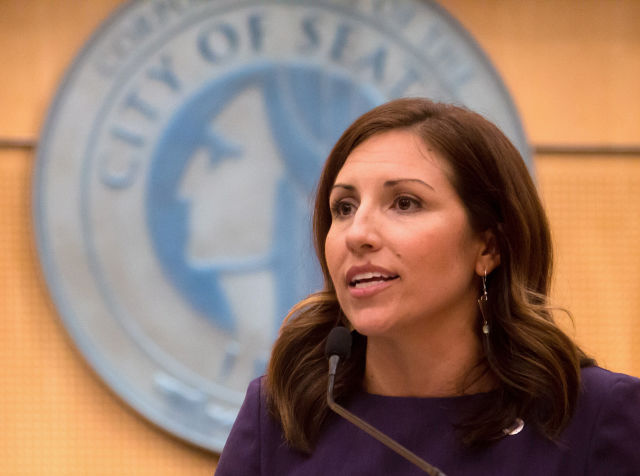Seattle Outlaws Subminimum Wage for People with Disabilities

Council member Teresa Mosqueda.
Image: Seattle City Council
For years, advocates for disability rights have been pushing at the state and federal level to remove subminimum wage laws that existed since the 1930s, back when people with disabilities faced institutions, removal from society, and little to no opportunity for education or work.
In Washington state, employers are still allowed to pay people with disabilities less than minimum wage, a practice that largely had to do with a now decades-old misunderstanding of disabilities. Seattle just banned the practice citywide.
Council members on Monday changed its Seattle municipal code by removing the authority to pay subminimum wage to individuals "whose earning capacity is impaired by age or physical or mental deficiency or injury." The Seattle Office of Labor Standards will now only allow lower wages for learners or apprentices getting on-the-job training.
Shaun Bickley, co-chair of the Seattle Commission for People with DisAbilities, at the public hearing on Monday cited that 80 percent of adults with autism who want jobs are unemployed. Other members of the public said people with disabilities still face discrimination in the workforce and aren't protected by the same labor rights.
"We can't fix all those issues today, but we can fix this one," Bickley said. "Today I'm asking you, my community is asking you, to recognize the equal value of disabled people in law and ensure that we are worth the same rate of pay as every other worker covered under Seattle's minimum wage."
City officials adopted the language for subminimum wage for people with disabilities in 2015 in its minimum wage law. That language had been modeled off the State Minimum Wage Act, which allows for "special certificates" that can be issued if someone has a disability.
In September, the Seattle Office of Labor Standards stopped issuing those certificates based on the director's rules. The bill, which passed through council member Teresa Mosqueda's committee late March, officially changed the code to remove the option altogether.
"All workers deserve the right to earn at least the minimum wage. That is why it is called the minimum," Mosqueda said. "We are saying that all work has dignity, and all workers deserve that same respect."




